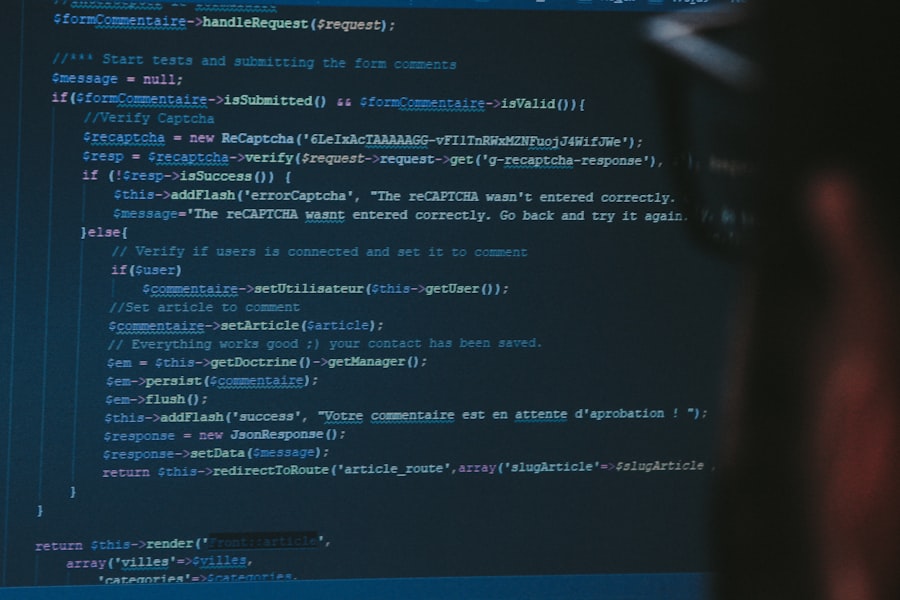In recent years, the landscape of cybersecurity has been dramatically altered by the rise of state-sponsored hacking. This phenomenon, characterized by cyber attacks orchestrated by government entities or their affiliates, has emerged as a significant threat to national security and global stability. As nations increasingly rely on digital infrastructure for critical operations, the potential for cyber warfare has escalated.
State-sponsored hackers are not only targeting sensitive information but are also seeking to disrupt essential services, manipulate public opinion, and undermine trust in democratic institutions. The sophistication and scale of these attacks have raised alarms among security experts and policymakers alike. The motivations behind state-sponsored hacking are multifaceted, often rooted in geopolitical tensions, economic competition, and ideological conflicts.
Countries engage in cyber espionage to gain intelligence on rivals, steal trade secrets, or disrupt adversaries’ capabilities. The anonymity afforded by cyberspace allows these actors to operate with relative impunity, making it challenging for nations to respond effectively. As the digital realm continues to evolve, so too does the arsenal of tools and techniques employed by state-sponsored hackers, necessitating a reevaluation of existing cybersecurity strategies.
Key Takeaways
- State-sponsored hacking poses a growing threat to national security and critical infrastructure.
- The US military is a prime target for state-sponsored hackers due to its strategic importance and vast amount of sensitive information.
- State-sponsored hackers use sophisticated tactics and techniques, including advanced persistent threats and zero-day exploits, to infiltrate military systems.
- The compromise of US military systems by state-sponsored hackers could have severe implications for national security and military operations.
- Cybersecurity plays a crucial role in defending against state-sponsored hacking, and international cooperation is essential in addressing this threat.
The US Military as a Prime Target
The United States military stands as one of the most prominent targets for state-sponsored hacking efforts. Given its vast array of sensitive information, advanced technologies, and strategic operations, the military’s digital infrastructure is a treasure trove for adversaries seeking to gain an upper hand. Cyber attacks aimed at military systems can compromise national defense capabilities, disrupt operations, and expose classified information that could be leveraged against the United States in times of conflict.
The stakes are particularly high, as any breach could have far-reaching consequences not only for military personnel but also for national security as a whole. Moreover, the military’s reliance on interconnected systems and networks makes it particularly vulnerable to sophisticated cyber threats. As the Department of Defense integrates more advanced technologies such as artificial intelligence and autonomous systems into its operations, the potential attack surface expands significantly.
State-sponsored hackers are keenly aware of these vulnerabilities and often employ advanced tactics to exploit them. The implications of a successful cyber attack on military systems extend beyond immediate operational disruptions; they can also erode public confidence in the military’s ability to protect the nation.
Sophisticated Tactics and Techniques Used by State-Sponsored Hackers

State-sponsored hackers employ a diverse array of tactics and techniques that reflect their advanced capabilities and strategic objectives. One common approach is spear phishing, where attackers craft highly targeted emails designed to deceive specific individuals into revealing sensitive information or downloading malicious software. This method exploits human psychology and often bypasses traditional security measures, making it a favored tactic among cyber adversaries.
Additionally, state-sponsored hackers frequently utilize zero-day vulnerabilities—previously unknown software flaws—to infiltrate systems undetected. Another sophisticated technique involves the use of advanced persistent threats (APTs), which are prolonged and targeted cyber attacks aimed at specific entities. APTs often involve multiple stages, including reconnaissance, initial compromise, lateral movement within networks, and data exfiltration.
These attacks can remain undetected for extended periods, allowing hackers to gather intelligence or disrupt operations at their leisure. The complexity and stealth of APTs underscore the need for robust cybersecurity measures that can adapt to evolving threats.
The Implications of US Military Systems Being Compromised
| Implications | Metrics |
|---|---|
| Loss of strategic advantage | Number of compromised military systems |
| Impact on national security | Extent of data breach |
| Compromised mission effectiveness | Percentage of affected operations |
| Financial cost of recovery | Estimated cost of system restoration |
The ramifications of compromised US military systems are profound and multifaceted. A successful cyber attack could lead to the exposure of classified information, including operational plans, troop movements, and intelligence assessments. Such breaches not only jeopardize ongoing missions but also provide adversaries with critical insights that could inform their strategies in future conflicts.
The loss of sensitive data can undermine the United States’ strategic advantage and embolden adversaries who may perceive a weakened military posture. Furthermore, compromised military systems can disrupt communication channels and operational readiness. In a conflict scenario, timely and secure communication is paramount for coordinating responses and executing strategies effectively.
If adversaries can manipulate or disrupt these channels through cyber means, it could lead to confusion on the battlefield and potentially catastrophic outcomes. The implications extend beyond immediate military concerns; they can also affect diplomatic relations and global stability as nations grapple with the consequences of cyber warfare.
The Role of Cybersecurity in Defending Against State-Sponsored Hacking
In light of the growing threat posed by state-sponsored hacking, cybersecurity has emerged as a critical component of national defense strategies. The United States military has recognized the need to bolster its cyber capabilities to protect sensitive information and maintain operational integrity. This involves not only investing in advanced technologies but also fostering a culture of cybersecurity awareness among personnel at all levels.
Training programs that emphasize best practices for identifying phishing attempts and securing sensitive data are essential in mitigating risks. Moreover, collaboration between government agencies, private sector entities, and international partners is vital for enhancing cybersecurity resilience.
The establishment of public-private partnerships allows for a more comprehensive approach to cybersecurity, leveraging the expertise and resources of both sectors. As state-sponsored hackers continue to evolve their tactics, a proactive and collaborative stance on cybersecurity will be crucial in defending against these sophisticated threats.
The Need for International Cooperation in Addressing State-Sponsored Hacking

Addressing the challenges posed by state-sponsored hacking requires a concerted effort on an international scale. Cyber threats do not respect national borders; therefore, nations must work together to establish norms and frameworks for responsible behavior in cyberspace. International cooperation can facilitate information sharing about cyber threats and vulnerabilities while promoting best practices for cybersecurity governance.
Collaborative initiatives can also help build trust among nations, reducing the likelihood of misunderstandings that could escalate into conflicts. Furthermore, establishing clear consequences for state-sponsored hacking is essential for deterring malicious actors.
By fostering dialogue among nations about cybersecurity issues, it becomes possible to develop a collective response to cyber threats that transcends individual national interests. In this interconnected world, cooperation is not just beneficial; it is imperative for safeguarding global security.
The Challenges of Attribution in State-Sponsored Hacking Attacks
One of the most significant challenges in combating state-sponsored hacking is the difficulty of attribution—determining who is behind a cyber attack. Unlike traditional warfare, where physical evidence can often point to a specific aggressor, cyber attacks can be obscured by layers of deception and anonymity. Hackers may use various techniques to mask their identities or route their attacks through multiple countries, complicating efforts to pinpoint responsibility accurately.
Attribution is further complicated by the fact that many state-sponsored hackers operate under the auspices of government agencies or military units that may have plausible deniability regarding their actions. This ambiguity can hinder effective responses from targeted nations, as they may be reluctant to retaliate without clear evidence linking an attack to a specific state actor. As a result, developing robust attribution capabilities is essential for holding malicious actors accountable and deterring future attacks.
The Potential for Escalation in Cyber Warfare
The potential for escalation in cyber warfare poses a significant concern for global security. As nations increasingly engage in cyber operations against one another, the risk of miscalculation or unintended consequences grows. A seemingly minor cyber attack could provoke a disproportionate response from an affected nation, leading to a cycle of retaliation that escalates into broader conflict.
This dynamic underscores the need for clear communication channels between nations to prevent misunderstandings that could spiral out of control. Moreover, the blurring lines between state-sponsored hacking and conventional warfare raise complex questions about how nations should respond to cyber attacks. As states develop offensive cyber capabilities alongside traditional military forces, the potential for hybrid warfare emerges—where cyber operations complement kinetic actions on the battlefield.
This evolution necessitates a reevaluation of existing military doctrines and strategies to account for the unique challenges posed by cyber warfare.
The Legal and Ethical Considerations of State-Sponsored Hacking
The legal and ethical dimensions of state-sponsored hacking present complex dilemmas for policymakers and security experts alike. While nations may justify cyber operations as necessary for national security or defense purposes, such actions often raise questions about sovereignty and international law. The lack of clear legal frameworks governing state behavior in cyberspace complicates efforts to establish norms that promote responsible conduct among nations.
Ethically, state-sponsored hacking poses challenges related to civilian harm and collateral damage. Cyber attacks targeting critical infrastructure can inadvertently affect civilian populations, leading to unintended consequences that may violate principles of proportionality and distinction under international humanitarian law. As nations grapple with these ethical considerations, it becomes imperative to develop guidelines that govern state behavior in cyberspace while balancing national security interests with humanitarian concerns.
The Impact of State-Sponsored Hacking on National Security
The impact of state-sponsored hacking on national security is profound and multifaceted. Beyond immediate operational disruptions or data breaches, these cyber attacks can erode public trust in government institutions and undermine confidence in democratic processes. When citizens perceive that their government cannot adequately protect sensitive information or critical infrastructure from foreign adversaries, it can lead to disillusionment and skepticism regarding national security policies.
Additionally, state-sponsored hacking can exacerbate geopolitical tensions between nations. Cyber attacks may be perceived as acts of aggression or provocation, prompting retaliatory measures that escalate conflicts further. As nations navigate this complex landscape, understanding the broader implications of cyber threats on national security becomes essential for developing effective strategies that safeguard both domestic interests and international stability.
Strategies for Mitigating the Threat of State-Sponsored Hacking
To mitigate the threat posed by state-sponsored hacking effectively, a multifaceted approach is necessary. First and foremost, investing in advanced cybersecurity technologies is crucial for detecting and responding to emerging threats promptly. Organizations must prioritize regular security assessments and vulnerability testing to identify weaknesses before they can be exploited by adversaries.
Additionally, fostering a culture of cybersecurity awareness among personnel is vital for reducing human error—the leading cause of many successful cyber attacks. Training programs should emphasize best practices for recognizing phishing attempts and securing sensitive data while promoting a proactive mindset toward cybersecurity. Finally, enhancing international cooperation through information sharing agreements and collaborative initiatives can strengthen collective defenses against state-sponsored hacking.
By working together to establish norms for responsible behavior in cyberspace and holding malicious actors accountable, nations can create a more secure digital environment that benefits all stakeholders involved. In conclusion, as state-sponsored hacking continues to evolve as a significant threat to national security, addressing its complexities requires concerted efforts across multiple fronts—technological innovation, international collaboration, legal frameworks, and ethical considerations must all play integral roles in safeguarding against this growing menace.
In recent years, state-sponsored hacking has become a significant concern for the US military, as adversarial nations increasingly target critical infrastructure and defense systems. A related article on this topic can be found on In The War Room, which delves into the complexities and implications of cyber warfare on national security. The article provides an in-depth analysis of how state-sponsored hacking groups operate and the measures being taken to counteract these threats. For more information, you can read the full article by visiting In The War Room.
🔍WATCH THIS! The Secret Weakness That Will Break The US Military🧭
FAQs
What is state-sponsored hacking?
State-sponsored hacking refers to cyber attacks that are carried out or supported by a government or its intelligence agencies. These attacks are often aimed at stealing sensitive information, disrupting critical infrastructure, or conducting espionage.
What is the US military’s stance on state-sponsored hacking?
The US military considers state-sponsored hacking to be a significant threat to national security. It has taken various measures to defend against and respond to such attacks, including the establishment of dedicated cyber warfare units and the development of advanced cybersecurity technologies.
How does state-sponsored hacking affect the US military?
State-sponsored hacking can have a range of impacts on the US military, including the theft of sensitive military information, the disruption of military operations, and the compromise of critical infrastructure. It can also pose a threat to the safety and security of military personnel.
What steps has the US military taken to defend against state-sponsored hacking?
The US military has implemented a range of cybersecurity measures to defend against state-sponsored hacking, including the development of advanced encryption technologies, the establishment of dedicated cyber defense units, and the implementation of strict security protocols for military networks and systems.
What are the implications of state-sponsored hacking for international relations?
State-sponsored hacking can have significant implications for international relations, as it can lead to diplomatic tensions and conflicts between countries. It can also undermine trust and cooperation between nations, particularly when sensitive government and military information is targeted.




